Frank ICSE Class 10 Biology Solutions – Endocrine System
PAGE NO :128
Solution 1:
- Pituitary gland
- Somatotrophin
- Thyroxine
- Pancreas
- Liver
- Adrenal gland
- Adenohypophysis
- Neurohypophysis
- Thyroxine
Solution 2:
- Somatotrophic Hormone – It is essential for the normal growth of an organism.
- Thyroid stimulating hormone – It stimulates the activity as well as the growth of thyroid glands.
- Adrenocorticotrophic hormone – It stimulates the activity of adrenal cortex.
- Gonadotrophic hormone – It promotes the growth of ovarian follicles in females and the growth of sperms in males.
- Insulin hormone – It lowers the blood sugar level.
- Corpus luteum – It secretes progesterone.
- Glucagon hormone – It raises the blood sugar level.
Solution 3:
- Insulin
- STH
- Islets of Langerhans
- STH
- Insulin
Solution 4:
- FSH – Follicle stimulating hormone
- LTH – Luteotropic hormone
Solution 5:
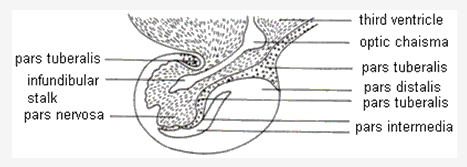
PAGE NO :129
Solution 6:
- (b)
- (c)
- (a)
- (e)
- (d)
Solution 7:
- True
- False
- False
- False
- False
Solution 8:
- Hormone – The secretions of endocrine glands which are carried by blood to the target organs are called hormones.
- Endocrine gland – The glands without ducts which secrete hormones are called endocrine glands.
- Exocrine gland – The glands with ducts which secrete enzymes are called exocrine glands.
- Hypothyroidism – It is the under secretion of thyroxine by thyroid gland which leads to retarded growth and mental development in infants.
- Hyperglycemia – Increase in blood sugar level is called hyperglycemia.
- Hypersecretion – The over activity of any gland leads to over secretion of hormones called hypersecretion.
Solution 9:
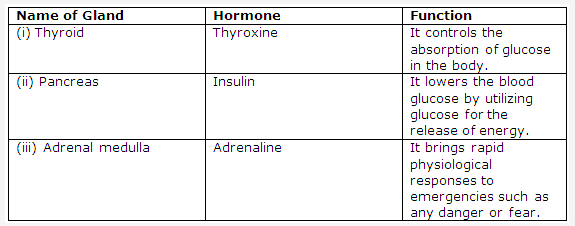
Solution 10:
- Diabetes mellitus – Diabetes mellitus is a disease caused by the deficiency of insulin hormone.
- Beta cells – Beta cells are the cells of pancreas that secrete insulin.
- Exophthalmic goitre – The over activity of thyroid gland leads to its enlargement, producing a big swelling in the neck region called exophthalmic goiter.
- Releasing hormones – A substance produced by the hypothalamus that is capable of accelerating the secretion of a given hormone by the anterior pituitary gland.
Solution 11:

Solution 12:
Insulin secreted by pancreas controls the level of glucose in blood.
Solution 13:
Adrenaline is called an emergency hormone because it brings rapid physiological responses to emergencies like danger, fear or other situations requiring vigorous action.
Solution 14:
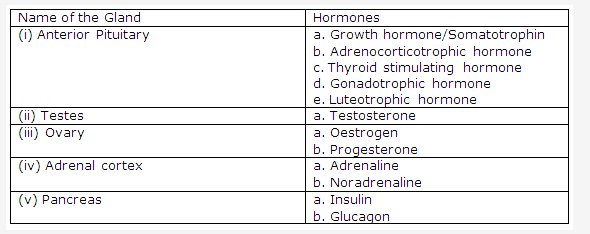
Solution 15:
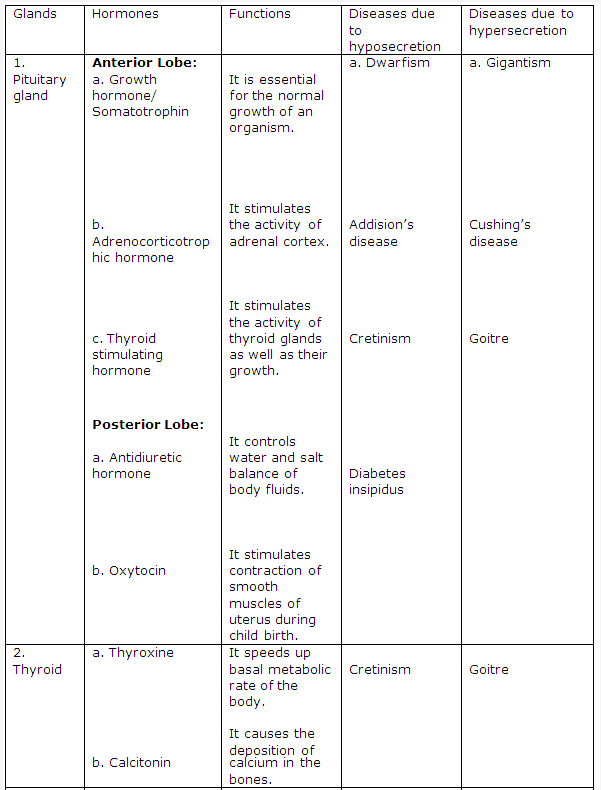
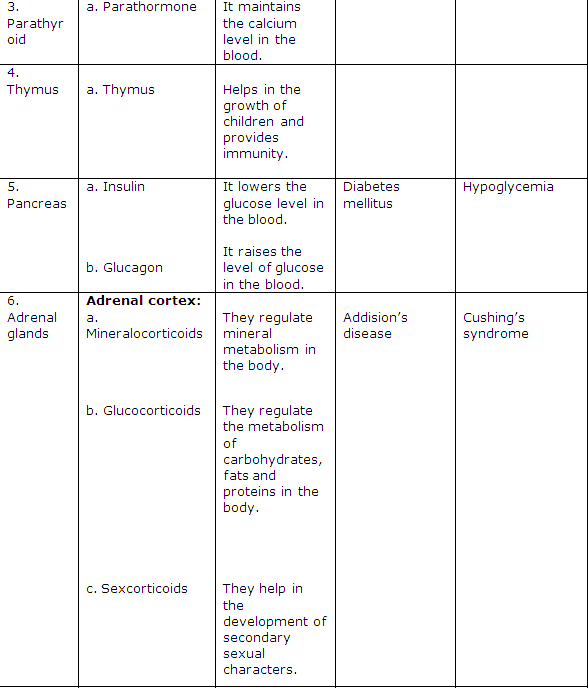
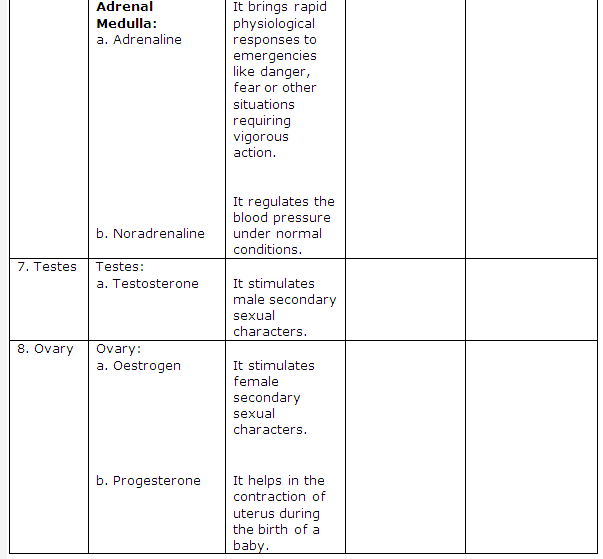
Solution 16:
- Exophthalmic goitre – It is caused due to over activity of thyroid gland.
Symptoms are – Enlargement and protrusion of the gland below the chin, increased pulse rate, nervousness and bulging of the eyes. - Diabetes mellitus – It is caused due to less secretion of the insulin hormone.
Symptoms are – Frequent urination, Sudden weight gain or weight loss, Excessive thirst and hunger.
Solution 17:
In hilly region, water has less iodine which is required for the production of thyroxine. So due to the deficiency of thyroxine, people suffer from goiter.
Solution 18:
Insulin is a protein hormone and if it is given orally it would be digested upon by the protein digesting enzymes in the alimentary canal.
Solution 19:
- The endocrine cells present in pancreas are: alpha cells, beta cells and delta cells.
- Insulin and glucagon.
- Insulin – It lowers the glucose level in the blood.
- Glucagon – It raises the level of glucose in the blood.
Solution 20:
- Adrenaline
- Insulin
- Glucagon
- Thyroxine
- Calcitonin
- Adrenaline
- Growth stimulating hormone
- Sex corticoids
- Antidiuretic hormone
- Non adrenaline
Solution 21:
- (b) Diabetes
- (b) Adrenal gland
- (d) Pancreas
- (b) Gigantism
- (a) Insulin
- (b) Liver
- (c) Target
- (c) under secretion of insulin
- (a) beta cells of pancreas
- (d) glucagon
- (c) progesterone
